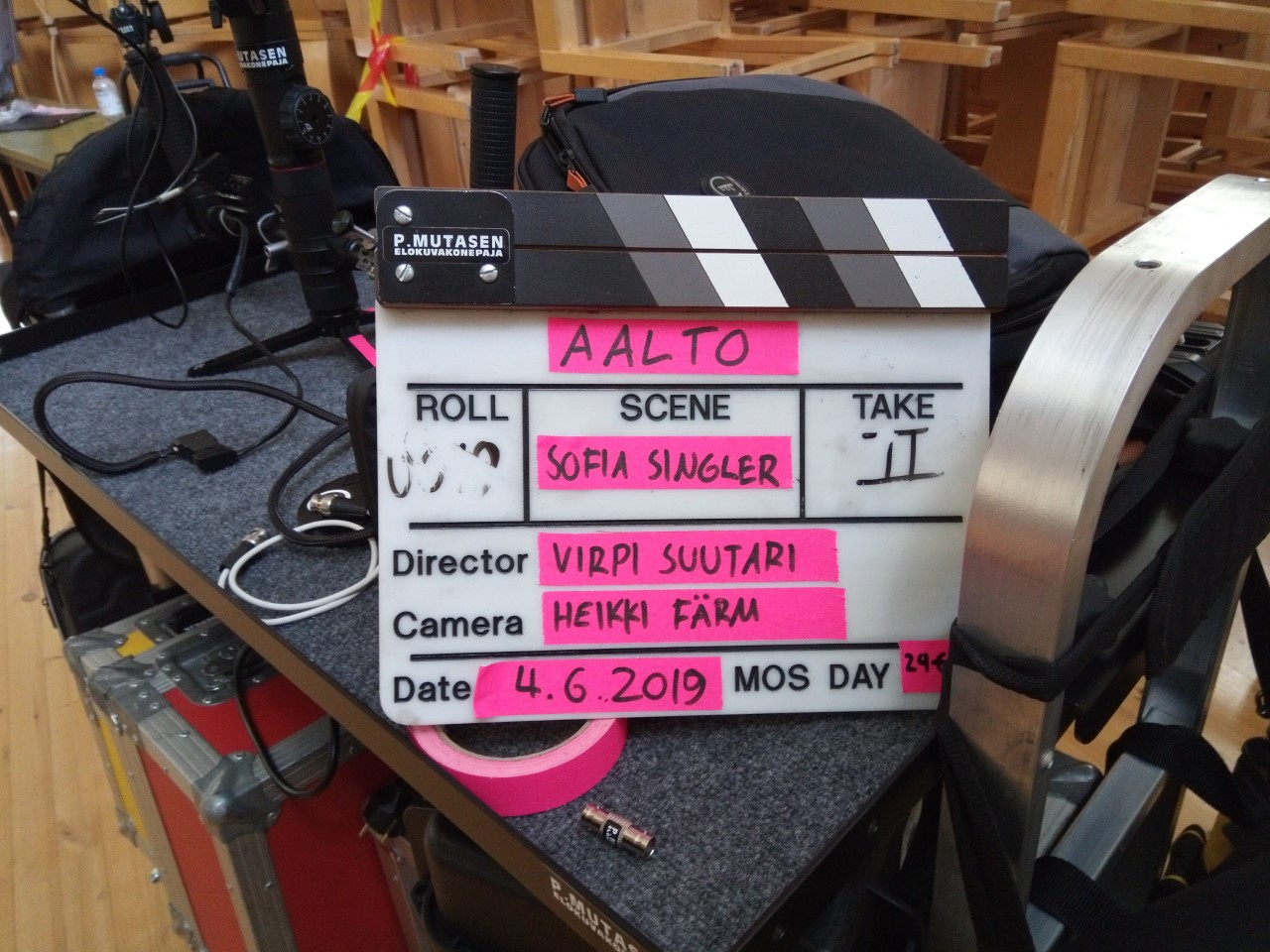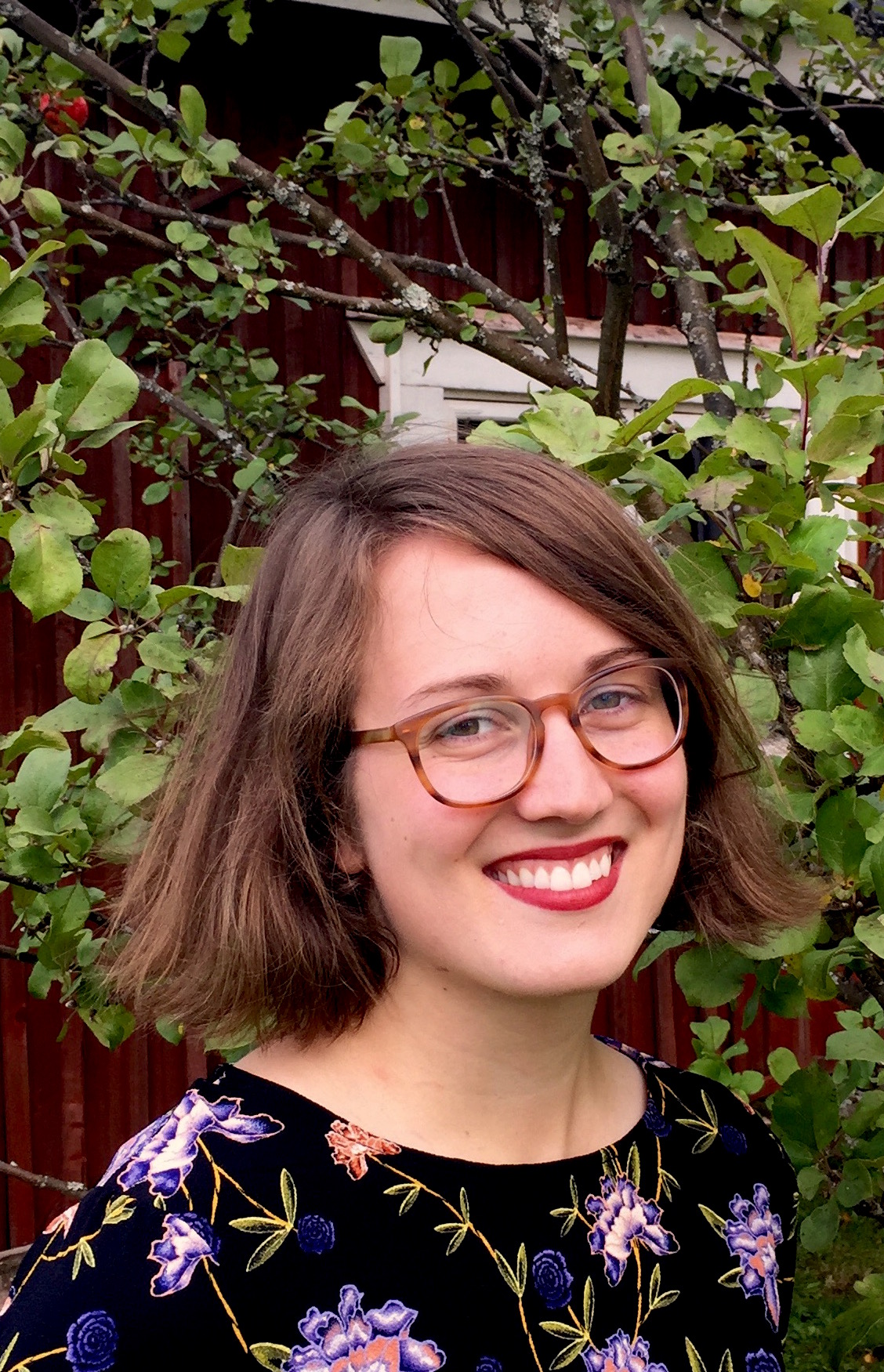
Sofia Singler has been collaborating with acclaimed film director on a feature film about Alvar Aalto, the greatest Nordic modern architect of the 20th century.
This film is both a biography and an artistic and intellectual interpretation of architecture. It uses film to interpret Aalto’s personal life and work in unison.
Sofia Singler
A Gates Cambridge Scholar is co-organising a public seminar this week on new methodologies in architectural historical research.
Sofia Singler [2016] has been collaborating with acclaimed film director Virpi Suutari over the past year as part of her doctoral work, mainly in the role of consultant on the distinguished modern architect Alvar Aalto’s religious projects. In Suutari’s new film AALTO, which will be internationally distributed in Finland, Sweden, Denmark, Germany, the Netherlands, Estonia and France, Sofia presents one of the Aalto atelier’s major works, The Church of the Three Crosses (1955–58), which is also the subject of her PhD thesis.
The Cambridge event, Projecting Alvar Aalto: New Perspectives in Research, Film and Curating, will be led by Sofia in collaboration with her supervisor and Gates Cambridge alumnus Dr Max Sternberg. It comprises a series of short talks and a panel discussion and explores new perspectives on Alvar Aalto at the intersection of scholarly, artistic and curatorial practices. Aalto is widely recognised as the greatest Nordic modern architect of the 20th century, but his relationship to the moving image – a growing field of study in architectural history – has not yet been subject to extensive research.
The public event, to be held in the Old Library at Pembroke College between 3 and 5pm on Thursday 12th March, is linked to an emerging collaborative project between The Centre for Visual Culture and Department of Architecture at Cambridge and the Alvar Aalto Museum in Finland, which seeks to interrogate the interpretive possibilities of fiction and documentary film in the analysis of Aalto’s work and modernism more broadly. For more information and to register for the event, please see Eventbrite.
Church of the Three Crosses
Sofia became involved in the feature film after Virpi Suutari got in touch, having heard about her research on Aalto’s church buildings. Sofia consulted Suutari on how best to film Aalto’s religious projects and on what they meant for his portfolio. Suutari wanted to film the Church of the Three Crosses in East Finland, the building that is at the centre of Sofia’s PhD research. She asked Sofia to present the building in the film and relied on her advice on how to film it. “Virpi asked me to identify the key architectural and spatial elements that matter. The structure of the wall, for example, is of particular importance, as it is a material statement on the nature of faith and doubt,” says Sofia.
The wall structure and the way Aalto places churches in urban settings are, according to Sofia, distinct features of the way he treats ecclesiastical buildings differently to others. She adds that scholars tend to treat architects’ ecclesiastical buildings as something peripheral to ‘orthodox modernism’ – as personal whimsy or professional opportunism. She believes this is not the case for Aalto, who had a great deal of freedom in designing the Church of the Three Crosses and who exploited this freedom to create a unique inside/outside dialectic in the building. The relationship between inside and outside is vital for understanding his approach and defines all his ecclesiastical architecture. “My conclusion is that the church is an architectural expression of doubt: the wall becomes a literal ‘in-between place’ that mirrors the sceptic’s position, which is neither fully ‘in’ nor fully ‘outside’ faith,” says Sofia.
She has found archival evidence that backs up this thesis, including correspondence between Aalto and his clients and local priests’ sermons which talk about the importance of doubt, and which call for churches to be ‘in-between places’ that welcome both believers and non-believers.
Collaborations between film and academia
Suutari grew up in Rovaniemi, a town in Lapland where Aalto designed a big public library. This affected her view of space and light and informed the development of her cinematic approach. The Aalto project was one she had been wanting to do for some time, although she was not trained in architecture. The film, which premieres internationally in the summer, presents a holistic interpretation of Aalto.
“Many films about architects are primarily biographies. This film is both a biography and an artistic and intellectual interpretation of architecture. It uses film to interpret Aalto’s personal life and work in unison,” says Sofia. She believes that architectural studies and filmmakers can both learn from collaborating more closely. “I gained a lot from seeing how the director worked and the conclusions I reached affected my research. It was very fruitful and we hope now to take this collaboration forward,” she says.

Sofia Singler
- Alumni
- Finland
- 2016 PhD Architecture
- Pembroke College
My research examines how the Finnish modernist Alvar Aalto’s ecclesiastical oeuvre can enrich our understanding of the relationship between religion and modern architecture, and revise misleadingly uncomplicated assumptions concerning their mutual exclusivity.
Previous Education
University of Cambridge
Yale University












